Layer poultry farming is a very common and popular business throughout the world. Starting this business is very easy and simple, even the beginners can also raise them.
Actually layer poultry farming means, ‘raising eggs producing birds for the purpose of eggs production’. For example, we can start raising chickens, quails or ducks for commercial eggs production purpose.
Commercial layer poultry production is a very profitable business. You can start this business in small scale, if you are a beginner.
But today, large scale or commercial production is becoming popular gradually. Because it’s a great way to make good profit.
You will start getting eggs from the poultry birds as early as their 12-20 weeks of age. And most of the commercial layer poultry birds start laying eggs regularly at their 25 weeks of age.
Today, people are raising layer poultry birds in many different methods such as free range system, cage system, deep litter system etc. Whatever system you choose, you have to ensure good care and good security of your birds for getting maximum production.
Advantages of Layer Poultry Farming
There are some benefits or advantages of starting a layer poultry farming business. Here we are trying to describe more about the top advantages of starting layer poultry farming business.
- Starting a layer poultry farm for eggs production is very easy. And it’s the main benefit of layer poultry farming business. Even the beginners can also start this business.
- You can start both small scale and commercial production depending on your budget.
- Small scale layer production doesn’t require high capital. But you will need good amount of money for starting a large scale production. The good news is ‘you can apply for bank loan for starting this business’.
- You can raise many birds in a small place.
- You can even raise some layer birds in your backyard.
- Although commercial production require high investment, but the ROI is good. You will be able to make good profit from your investment.
- Eggs are very popular throughout the world. So, you don’t have to worry about marketing your products. You will probably be able to easily sell your products in the local market.
- Eggs are great source of protein and have very good demand in the market.
- As commercial layer poultry production is profitable, so it can be a great employment source for the rural people. Especially for the educated unemployed young people.
- Commercial layer poultry production is a great way to ensure food security.
- You and your family members can enjoy fresh eggs if you start raising your own layer birds.
How to Start Layer Poultry Farming Business
Starting small scale layer poultry production for family consumption and earning a little is very easy and simple. Even the beginners can start such small scale production.
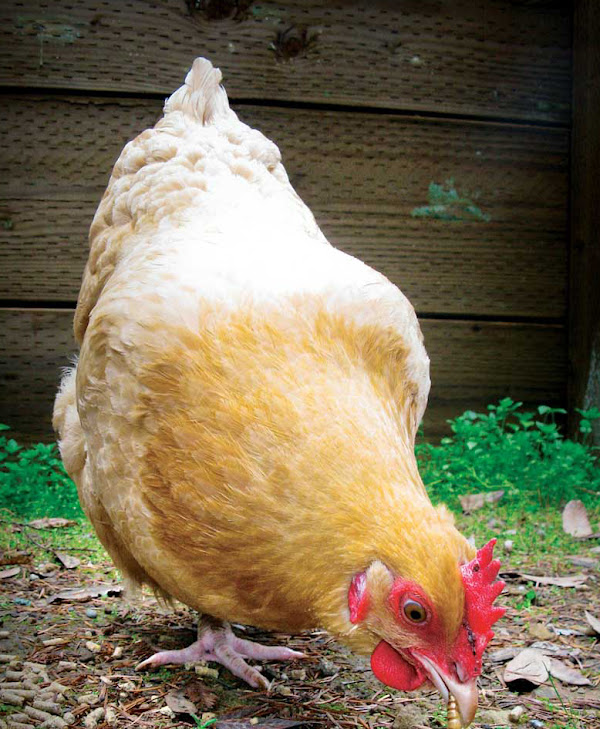
But starting commercial production require a lot of equipment and it also require a lot of knowledge. So, we recommend having training from an institute or from an expert before starting commercial production.
Select A Good Location
First of all, you have to select a very good location for starting your layer poultry farming business.
You can raise the birds in a corner of your house or in backyard if you want to raise a few birds.
But select a safe, secure and calm place if you want to start commercial production. It will be better if the selected area is far from the residential area.
Ensure water, electricity and good transportation facilities are available in your selected area.
Select The Right Breed
Selecting the right breed for your business is very important. You can select breeds which are available and popular in your area. Chickens, quails and ducks are common poultry birds used for commercial eggs production.
If you are willing to raise chickens, then Rhode Island Red, Leghorn, Sussex, Ancona, Plymouth Rock, Hamburg and some hybrids will be good for commercial eggs production.
Indian Runner, Khaki Campbell, Buff, Welsh Harlequin, Ancona and Magpie are some great duck breeds for eggs production.
If you choose quails, then Japanese, Tuxedo, Pharaoh, British Range, English White and Manchurian Golden will good for eggs production.
Housing
Making a good house is very important for keeping your birds safe from predators, adverse weather and other problems. A hygiene house will also help to keep your birds healthy and diseases free.
Most of the commercial poultry birds are smaller in size and they require relatively less housing space. Exact amount can vary depending on the breed.
Install good ventilation system, and ensure flow of sufficient amount of fresh and clean air inside the house.
Feeding & Watering
Feeding the birds with very good quality and nutritious food is the most important part of layer poultry farming business.
Poultry birds generally require protein rich food. So, ensure adequate amount of protein is available in their diet.
Today, there are many companies available throughout the world which are producing ready-made feeds for the laying birds. You can use such feeds for feeding your layer birds.
And along with feeding the birds with quality feeds, always try to provide them with adequate amount of clean and fresh water.
Breeding
Most of the poultry birds are good breeders, and they will produce fertile eggs if you keep good ratio of male and female birds in the flock.
Although, commercial producers don’t let their birds to breed, rather they purchase the chicks from hatcheries.
Caring & Other Management
Taking good care of the birds is very important for successful layer poultry farming business. Good caring will keep them healthy, and you will be able to get maximum production.
Monitor the health of the birds regularly, and vaccinate them timely. And always try to keep good contact with the vet in your area.
Never provide the birds with contaminated feeds or polluted water. And always try to clean the house on a regular basis.
Marketing
Poultry products have very good demand and value in the market. So, you will probably be able to easily sell the products in the market.
Although, it is better to set your marketing strategies before starting this business. You will be able to make good profit from this business if you can sell your products at good price.
These are the common steps and ways for starting and operating a successful layer poultry farming business. Hope this business guide has helped you! Good luck & may God bless you!
Top Layer Poultry Farming Tips for Success
Layer poultry farming is a very profitable and popular venture and it can provide a consistent source of income through egg production.
It’s crucial to follow best management and practices to ensure the profitability and sustainability of your layer poultry farm. Here we are going to share some best tips which will help you achieve success in this business.
First, Understand Layer Poultry Farming
First of all, you have to learn more about this business. Layer poultry farming focuses on raising hens primarily for the production of eggs. These birds, known as layers, are different from broilers, which are raised for meat production.
Layers are carefully bred to maximize egg production, making them an ideal choice for egg farmers. And you can sell these birds for meat once they finish their eggs production.
1. Select the Right Breed
Choosing the right breed is very important for success in this business. You should emphasis your local demand while choosing the right breed for your business. Start with the right breed of layers. Choose breeds which are known for their high egg-laying capabilities, such as White Leghorns, Rhode Island Reds, or Sussex.
2. Purchase Good Quality Chicks
Purchasing good quality and healthy chicks is also very important. Because good quality and healthy chicks always ensure good production. Source healthy and disease-free chicks from reputable hatcheries to establish a strong foundation for your flock. It will be better if you can purchase from your local suppliers.
3. Start Small & Expand Gradually
As a beginner, you should not start your layer poultry farm initially in large scale. Rather start with a few number of birds, gather experience and expand gradually.
4. Provide Them Adequate Space
Giving adequate space per bird is a must for keeping them healthy and happy. Provide sufficient space in the poultry house to prevent overcrowding, which can lead to stress and reduced egg production.
5. Ensure Good Ventilated System
Good ventilation system helps to remove excess gas and unhealthy air from inside the house. So, ensure good ventilation in the poultry house to maintain optimal air quality and regulate temperature and humidity.
And all these are very important for good health of your birds. Install exhaust fans and vents to ensure proper air circulation and reduce ammonia buildup.
6. Lighting Management
Light play a very important role in eggs production of these poultry birds. Implement a consistent lighting schedule to stimulate egg production. Layers require 14-16 hours of light per day for peak performance.
7. Provide Them Adequate Water
Providing adequate amount of water is very important for keeping your birds healthy. Ensure a clean and accessible water supply at all times to keep your layers well-hydrated. Never provide them dirty or contaminated water.
8. Provide Them Nutritious Food
This is the most important part of commercial layer poultry farming business. Because good and nutritious food helps to keep the birds healthy, diseases free, and also helps to maximize eggs production.
You can consult a poultry nutritionist to formulate a balanced diet that meets the specific nutritional requirements of your layers. Or just purchase ready made commercial feeds for feeding your birds.
9. Regular Feeding is Important
Feeding the birds timely on a regular basis is very important. So, try to stick to a regular feeding schedule to promote healthy growth and good egg production.
10. Disease Prevention
Practice strict biosecurity measures to prevent the introduction and spread of diseases on your farm. Regularly inspect your flock for signs of illness or distress and take immediate action when necessary. Contact with your vet as soon as possible if you notice any health concern.
11. Managing Health and Hygiene
Maintaining good hygiene practices and monitoring the health of your layers is critical. Implement a vaccination schedule, practice biosecurity measures, and be vigilant for signs of disease.
Regularly clean and disinfect the poultry house to prevent the spread of infections. Maintaining a clean and hygienic environment within the poultry house helps to reduce the risk of disease outbreaks.
12. Provide Vaccination Timely
Timely vaccination helps the birds to stay healthy and free from many diseases. Follow a vaccination schedule recommended by a poultry veterinarian to protect your layers from common diseases.
13. Provide Nest Boxes
Provide comfortable and clean nest boxes to encourage hens to lay eggs in a suitable location. Your birds will lay hare and there without nest boxes and they will broke many eggs. So, providing them with nest boxes is also very important.
14. Collect Eggs Regularly
Collect eggs timely and regularly. Try to collect at least twice a day to prevent damage and maintain egg quality. Sort and store the eggs immediately after collecting if possible.
Grade and package eggs carefully to maintain their quality and appeal to consumers. Store eggs in a cool, clean, and well-ventilated place to prolong their shelf life. And always try to handle eggs with care to prevent breakage and contamination.
15. Keep Record of Everything
Keeping records of everything is very important. So, try to keep detailed records of your flock’s performance, including egg production, feed consumption, and health status.
16. Give Enough Space per Bird
Allowing adequate space per bird is important. Enough space helps the birds to move freely and that ultimately helps them to stay healthy. Allow a minimum of 2-3 square feet of space per bird to ensure their comfort and well-being.
17. Provide Adequate Roosting Space
Roosting place help the birds to rest and stay at night. So, provide roosting perches for your layers to rest comfortably at night.
18. Pest Controlling is Must
Pests harm a lot to your birds. So, implement pest control measures to keep your poultry house free from flies, rodents, and other pests.
19. Marketing Strategy
Develop a marketing strategy to promote your eggs, emphasizing their quality and freshness. Conduct market research to identify potential buyers and understand market demand for your eggs.
20. Waste Management
Implement effective waste management practices to keep the farm clean and reduce odors. This is also very important for keeping your birds healthy and disease free.
Related Queries & FAQs
There are lots of questions and queries related to layer poultry farming. Here we are trying to list the common questions and queries about this business. Hope you will find answers of your questions or queries. Don’t hesitate to ask us if you have more questions.
What is layer poultry farming?
Layer poultry farming is the practice of raising hens primarily for the purpose of egg production.
What is the difference between layers and broilers?
Layers are raised for egg production, while broilers are raised for meat production.
What breeds of chickens are best for layer poultry farming?
Popular layer breeds include White Leghorns, Rhode Island Reds, Sussex, and Plymouth Rocks.
How many hours of light do layers need for egg production?
Layers require 14-16 hours of light per day to stimulate egg production.
What is the lifespan of a laying hen?
The productive lifespan of a laying hen is typically around 2-3 years.
How do I choose healthy chicks for my layer poultry farm?
Select chicks from reputable hatcheries, and choose those that are active, alert, and free from deformities or diseases.
What is the best housing system for layers?
The housing system should be well-ventilated, protect from predators, and provide adequate space per bird.
What should I feed my layers?
Consult a poultry nutritionist to formulate a balanced diet consisting of grains, protein sources, vitamins, and minerals.
How often should I feed my layers?
Layers should be fed regularly, typically 2-3 times a day.
What are the common diseases in layer poultry farming, and how can I prevent them?
Common diseases include Newcastle disease, Avian influenza, and coccidiosis. Prevention measures include vaccination and biosecurity.
What is the ideal temperature for a layer poultry house?
The temperature should be maintained between 65°F to 75°F (18°C to 24°C) for optimal egg production.
How do I stimulate egg production in my layers?
Implement a consistent lighting schedule with 14-16 hours of light per day.
When do layers start laying eggs?
Layers typically start laying eggs at around 5-6 months of age.
How can I ensure egg quality?
Maintain a clean and hygienic environment, collect eggs regularly, and store them properly.
How many eggs can I expect from each hen per year?
The egg production rate depends on the breed but can range from 250 to 320 eggs per year.
Can I keep roosters with my layer flock?
While it’s not necessary, you can keep a few roosters to fertilize eggs if you plan to hatch chicks.
How should I handle sick or injured layers?
Isolate sick birds, provide proper care, and consult a veterinarian for treatment.
What is the egg-laying cycle of a layer hen?
Hens typically follow a 24-26-hour egg-laying cycle, with most eggs laid in the morning.
How do I market my eggs from a layer poultry farm?
Identify potential buyers, create a brand, and promote your eggs based on quality and freshness.
How do I manage egg collection and grading?
Collect eggs at least twice a day, clean them, and grade them based on size and quality.
What is the lifespan of a layer poultry house?
With proper maintenance, a layer poultry house can last for 10-15 years or more.
Can I use organic methods in layer poultry farming?
Yes, you can adopt organic practices by using organic feed and following organic certification standards.
How can I control pests and rodents in my poultry house?
Implement pest control measures, including traps, baits, and regular cleaning.
What should I do with spent layers that have stopped laying eggs?
You can sell them for meat or use them for other purposes, such as making chicken broth.
What is the average egg weight and size produced by layers?
The average egg weight is around 55-65 grams, and the size can vary from small to extra-large.
How do I handle eggshell quality issues?
Ensure proper calcium supplementation in the diet, maintain consistent lighting, and address any stress factors.
Can I start layer poultry farming on a small scale?
Yes, you can start with a small flock and gradually expand as you gain experience.
How do I maintain good air quality in the poultry house?
Install proper ventilation systems to ensure the removal of excess moisture and ammonia.
What is the best bedding material for the poultry house?
Common bedding materials include straw, wood shavings, or rice husks.
How do I dispose of poultry waste responsibly?
Consider composting, recycling, or using waste as fertilizer on crop fields.
Can I use artificial insemination in layer poultry farming?
Artificial insemination can be used for selective breeding but is not commonly practiced in small-scale layer farms.
How can I expand my layer poultry farming business?
Gradually increase the flock size, invest in better infrastructure, and explore new markets for your eggs.
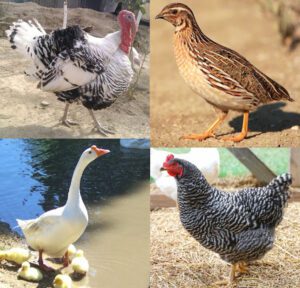
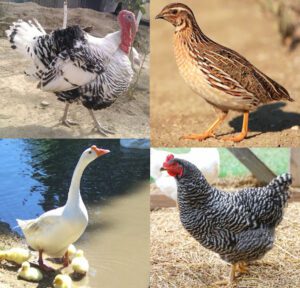
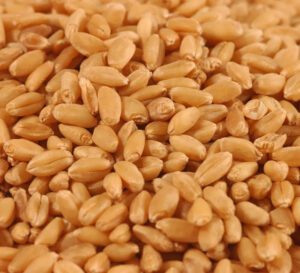
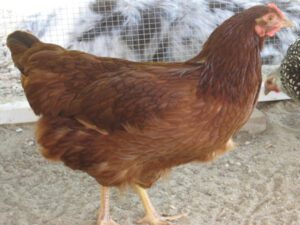
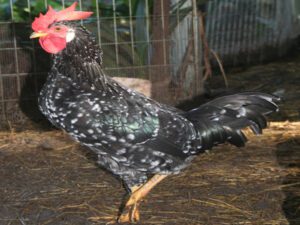
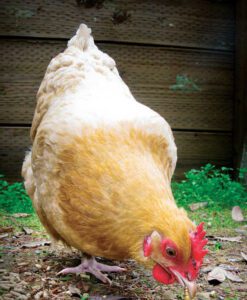
Thanks very much for the guide, i have Allred started Sussex breeding backyard on the corn of my yard.